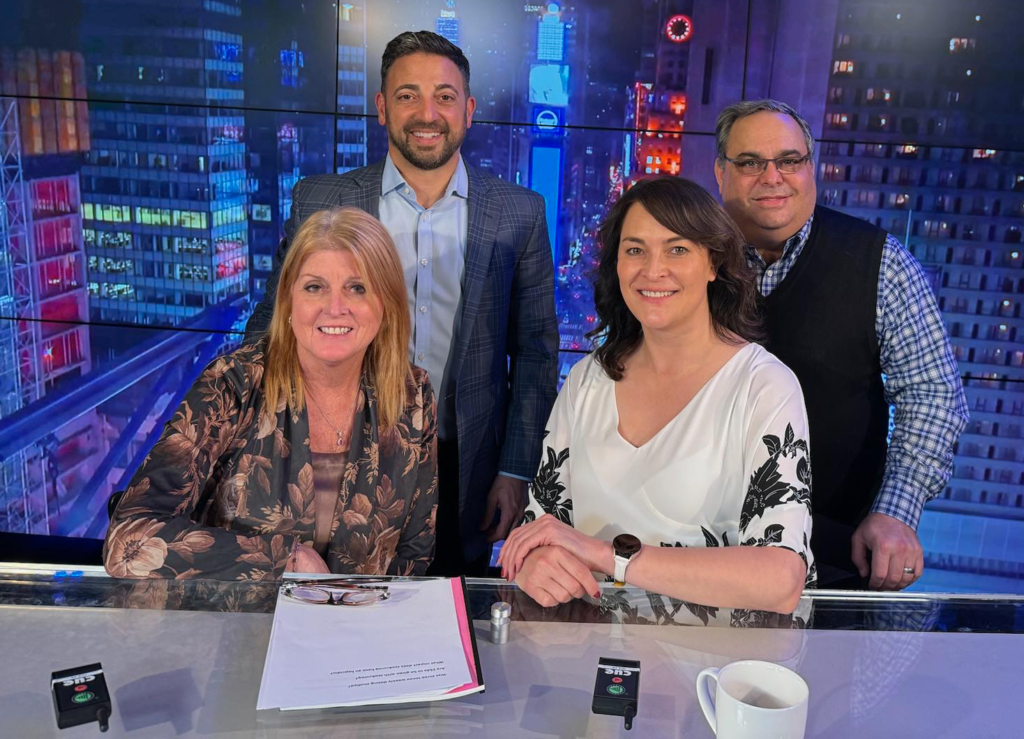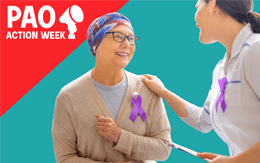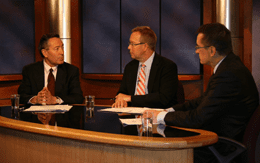
National and regional live studio broadcasts have long been a med comm staple used by BioPharma companies to educate HCPs by connecting the best with the brightest. From the days of driving satellite trucks to venues all around the country to high-definition video streaming over the internet, technology has largely shaped the evolution of this effective peer-to-peer tactic. Such advances will continue to reduce costs, expand reach, and foster greater interactivity. However, there are incremental best practices throughout critical development phases of a broadcast that you can employ. Above all, the success or failure of a broadcast always comes down to managing all of the many moving pieces. At V2V, we believe the difference is in the details!
We recently sat down with several team members to discuss the keys to creating compelling studio broadcasts with lasting impact. Each expert shared an insight on the various facets of planning a broadcast from conception to execution. Unquestionably, it’s these details that come together to form a flawless program. Here’s what they had to say:
1. Leverage Adult Learning Principles to Change Behavior

“HCPs need to know the benefits, values, and purposes of an educational program. Why are they learning what they’re learning? If not, they likely won’t engage in the experience. Thus the best national broadcast programs are built on adult learning principles. For example, the broadcast must demonstrate to physicians how the content is relevant to their patients. Then contextualize it using language they’re familiar with, and offer tangible ways to implement the new learnings in their practice. Done the right way, use of adult learning principles in broadcast programs leads to higher knowledge retention and a stronger likelihood of changing behavior to include a new treatment option.” – Dan Rehal, President
2. Audience Engagement Goes Far Beyond Polling and Q&A

“If you’re watching a broadcast, why are you engaged? You should be engaged by who and what’s being presented, but also the way it’s being presented. From a production standpoint, you need to intuitively know what participants will be looking at during each moment of the broadcast to keep them engaged. At every level you should be thinking, ‘how can I make this production more interesting?’ If you only think of polling and Q&A as your primary tools for engagement, you’re missing a huge opportunity. For that reason, having a partner with direct pharma experience and a background in studio production is a big advantage. We understand what you’re trying to achieve and the nuances of presenting content in a way that will resonate best with your audience.” – Howard Drazner, Executive Vice President/General Manager
3. Optimize Your Production for Every Type of Medium

“No one wants to see talking heads with slides anymore; the bar has been raised. Having the right technology is key to ensure the message is presented in a way that resonates and stays with HCPs long after the broadcast ends. It’s easy to forget that there are many different ways for people to ingest that information. You don’t want to be in a situation where the presented data looks great on a large screen but is unreadable on a mobile device. Your slides, charts, and supporting graphics should always be optimized to maximize impact regardless of the medium. Whether HCPs view the broadcast at a local venue or watch it on a laptop, PC or tablet, you want your visual components to shine. This way, your attendees are more engaged and walk away retaining the key messaging of your program.” – Michelle Haag, Sr. Director, Creative Services & Technology Innovation
4. Don’t Underestimate the Value of Chemistry

“KOL presenters typically know the content like the back of their hand. Therefore, the best investment of time upfront is spent preparing them to be comfortable on a live broadcast set. It’s not just about mechanics like how to read a teleprompter or face the cameras, but the dynamics of how they engage with each other. In a panel or roundtable situation where there are two or more speakers and a moderator, the goal is to foster an interactive dialogue and a synergy among these presenters. It’s that chemistry which keeps HCP viewers engaged and takes a national broadcast from average to outstanding.”– Lisa Dougherty, Vice President, Client Services
5. Vet and Test Venues With Onsite Resources

“When sourcing local venues to host a live national broadcast, one often overlooked detail is internet connectivity, speed, and bandwidth. Downtime is not an option. That’s why we take the time to vet each venue prior to contracting. During this process, we can immediately see testing results to determine if the space is at risk or passes standards. Another rule of thumb is to anticipate that multiple venues may have to be vetted during this process.” – Gail Brooks, CMP, Program Director
To get a better idea of the techniques used in a highly professional, well-produced broadcast, view our recent webinar here.
Learn More and See a Demo
It helps to have an experienced partner managing these details when conducting studio broadcasts or any other peer-to-peer engagement tactic. Accordingly, our VisionCast® services can help you advance your studio broadcasts. We utilize a variety of strategies that enable you to meet your audience anywhere and everywhere. Interested in learning more about our services? Reach out to us to discuss your needs and schedule a demo!




